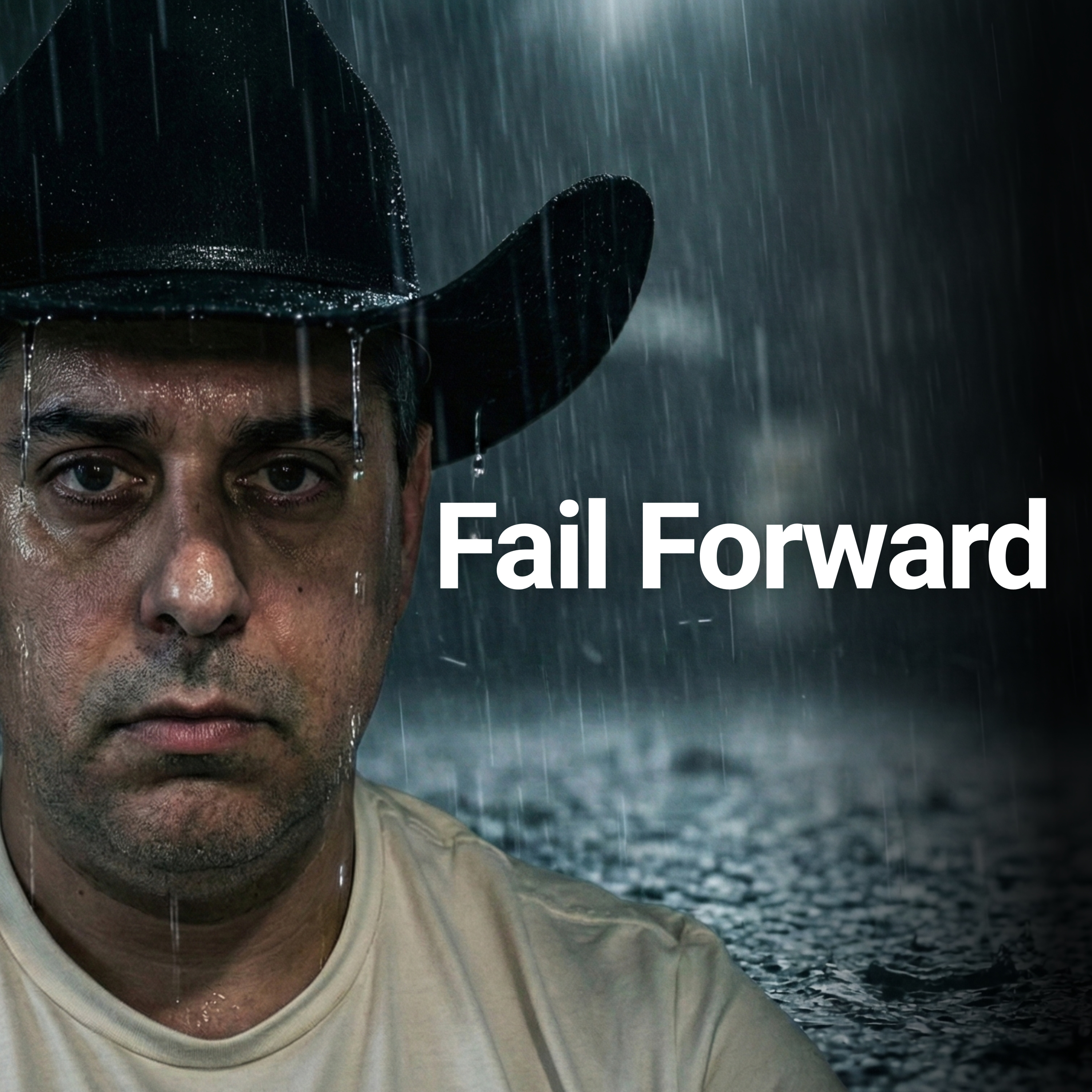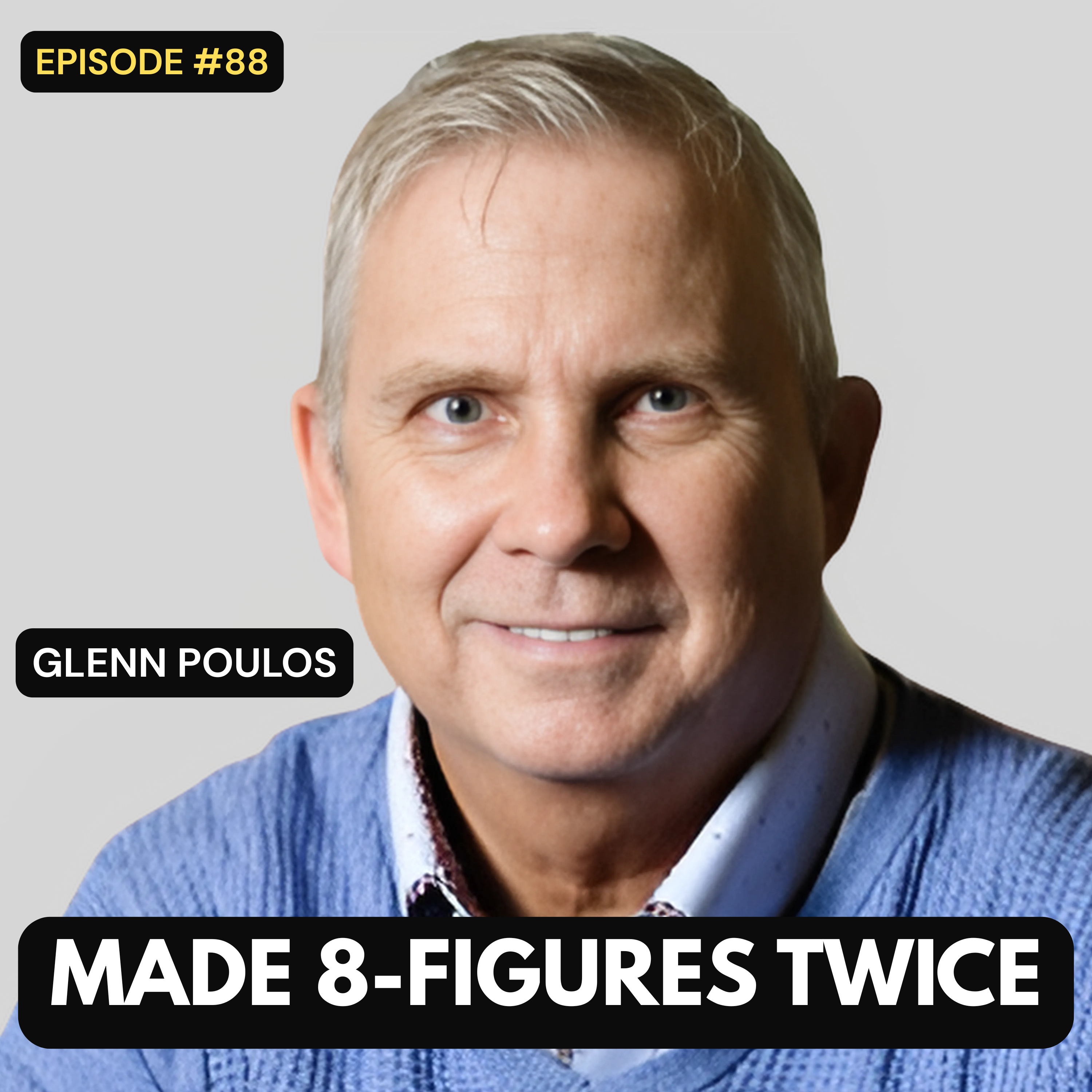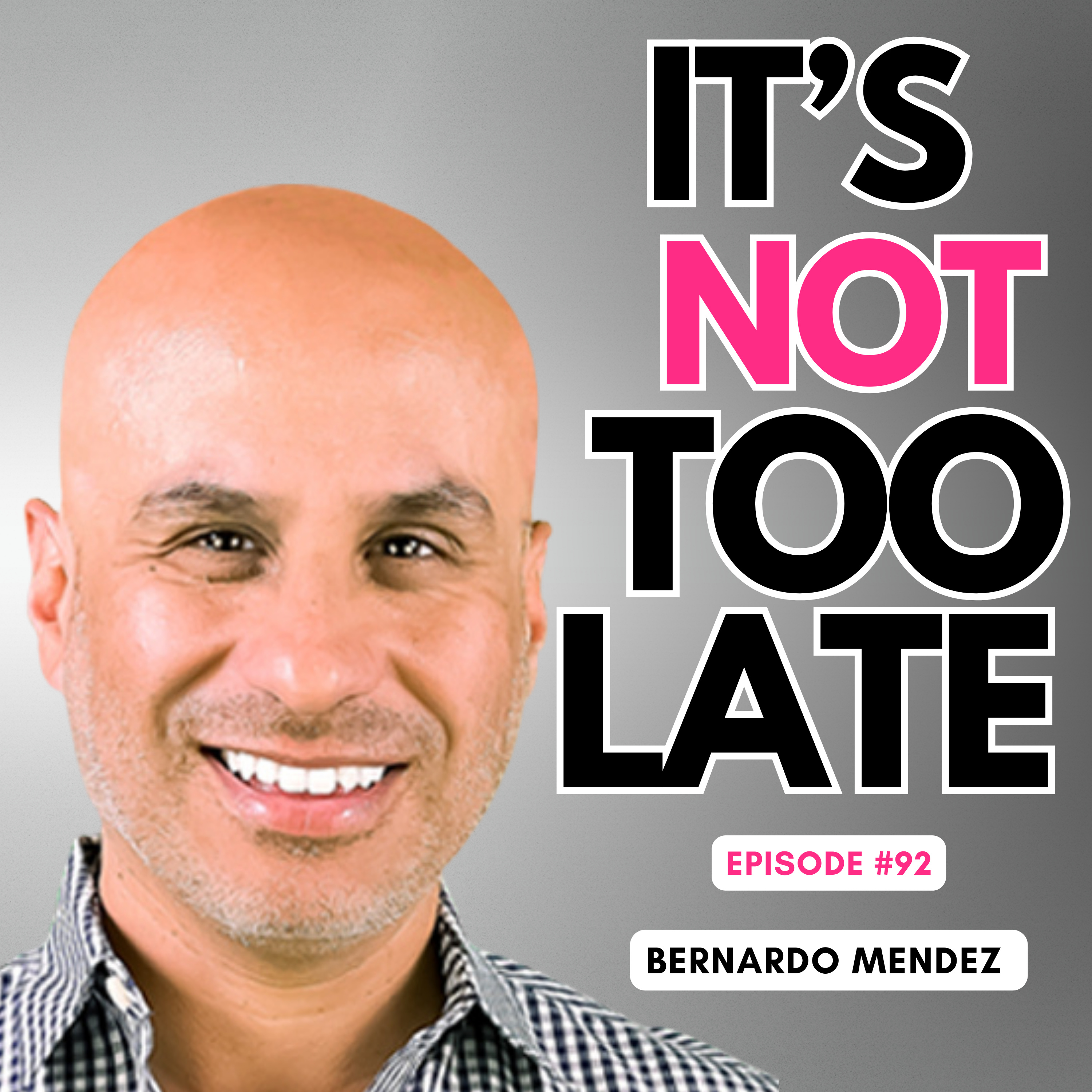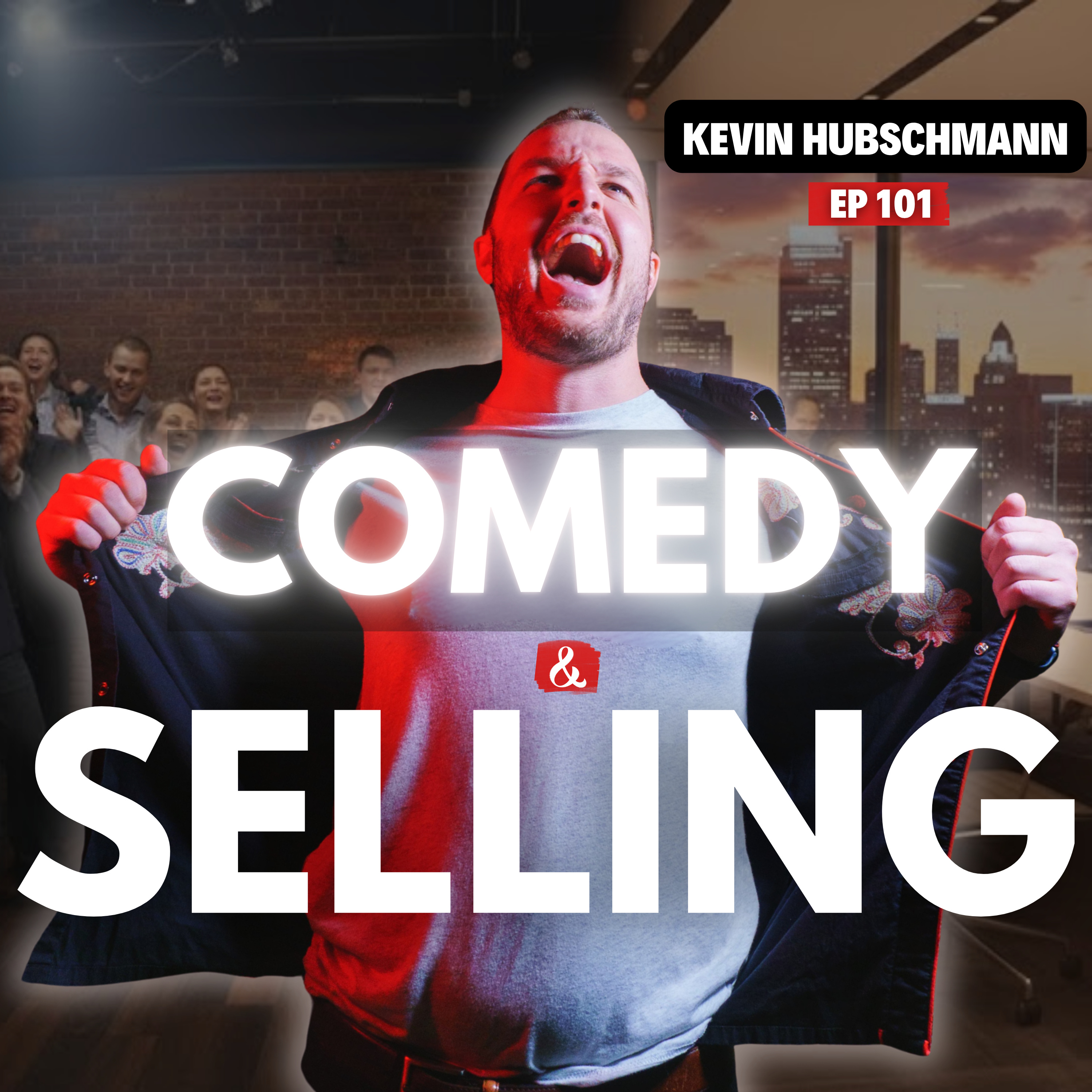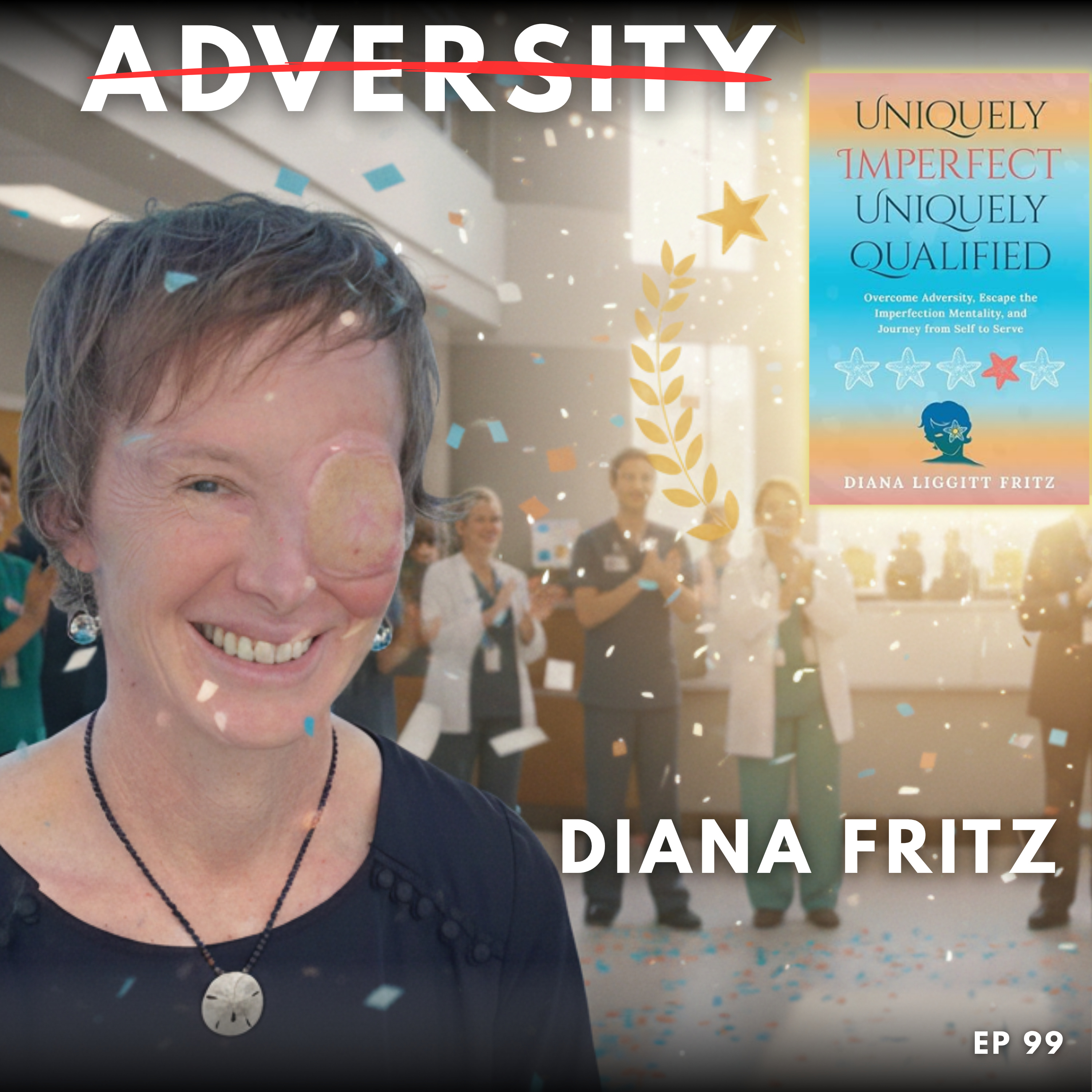
Summary
In this conversation, Diana Fritz shares her inspiring journey of resilience through adversity, particularly her battle with cancer. She discusses the importance of mindset, the lessons learned in parenting, and how to create a culture of justified complaints in the workplace. Diana emphasizes the significance of gratitude and the impact of relationships, both personal and professional, in navigating life's challenges. Her story serves as a powerful reminder of the strength of the human spirit and the importance of choosing one's response to adversity.
Follow Diana Frtiz
Takeaways
-
Resilience is about how we respond to adversity.
-
Choosing a positive mindset can change outcomes.
-
Letting people help is a sign of strength.
-
Gratitude plays a crucial role in overcoming challenges.
-
Creating a culture of justified complaints fosters growth.
-
Parenting through adversity teaches valuable lessons.
-
Relationships can provide essential support during tough times.
-
Mental health awareness is increasingly important for youth.
-
Finding love can start with friendship, especially during tough times.
-
Every moment is an opportunity to make a positive impact.
Sound Bites
"You get to choose your response."
"I learned how to let people help me."
"Gratitude is also very important."
Chapters
00:00 Introduction to Resilience and Personal Journey
05:08 Facing Adversity: The Cancer Diagnosis
10:32 Lessons in Parenting and Resilience
15:59 The Importance of Mindset and Perspective
21:26 Creating a Culture of Justified Complaints
27:03 Navigating Relationships and Finding Love
32:23 Defining Resilience and Moving Forward
37:40 Current Victories and Future Aspirations
Paul Leon (00:00)
The only reason this podcast grows is because of you. When you hit that follow button or leave us a review, it means the world to me. I did a cost analysis: each episode’s resources cost somewhere around $2,500 and up. We give a lot of this professional development away for free. What means the world to me is when you leave a review or give us five stars.
I will do everything in my power to make sure that The Manager’s Mic podcast is exceptional and serves your professional development.
Paul Leon (00:29)
I actually picked up our expert’s book for today’s podcast, and I’m reading it.
Diana, I always start every podcast as if there’s one new person who’s never heard of The Manager’s Mic and may have never met you before.
The book—if you’ve never heard of it—is Uniquely Imperfect, Uniquely Qualified. I will put links to that book in the show notes. I recommend you check it out.
Diana Fritz, if you wouldn’t mind, please give us an intro, and then we’ll talk about the core topic—resilience—today, if that’s fair.
Diana (01:01)
Sounds good. Great to be here. Thank you. I am Diana Fritz. I am in Florida. We’re both probably in warm climates right now at this time of year. I’m honored—have been for multiple years—to be a leader and to serve as an executive with multiple companies.
I think the preparation earlier in my life, in regard to how to handle adversity and choose your mindset no matter what happens, was put to the test at a whole new level almost 12 years ago when I was first diagnosed with a rare form of cancer. Thus my unique look, if you’re with us on video—with one eye. I was able to put all of those lessons learned throughout life to good use: to be resilient, to still lead while going through something tough, to lead my family, lead in the work environment I was in, lead myself, and be a positive presence to the doctors and the people around me.
I’m here today. I just had chapel this morning, and they asked me, “How long have you been battling cancer?” I said, “I’m proud to say 12 years,” because I’m still here. When I was first diagnosed, people didn’t live 12 years after they were diagnosed. So I’m happy to be here.
Paul Leon (02:16)
I found it fascinating, studying your LinkedIn, that you’ve had some pretty amazing career success. If I recall correctly—and correct me if I’m wrong—you’ve held executive and vice president positions. In your book, you came from humble beginnings. I know your grandma, if I’m correct, had a big influence on you. And when you were younger, you wrote a letter—this may sound odd—that was preparing you for something you didn’t know was coming. Can we speak to that a little and peel back that onion, if that’s fair?
Diana (02:51)
That paper you’re referencing was handwritten, because at the time when I was in college we didn’t have computers or email; I didn’t have a cell phone. I had forgotten I wrote it. A few months after my eye was removed, I was cleaning out my closet and found that paper. It gave me chills because it was like a letter from my younger self to my older self, indicating that if someone were to get cancer or a life-threatening disease, they have the freedom to choose how they’re going to respond. Life isn’t fair, and they’ll need to figure out if faith and the people around them are going to help them choose positivity and navigate the circumstance.
Paul Leon (03:27)
Yeah.
Diana (03:35)
I actually read that today to a group of kids. The important part is that I was 17 when I wrote that paper.
Paul Leon (03:42)
Really?
Diana (03:44)
At the time I was reading Viktor Frankl’s Man’s Search for Meaning, and that’s part of what I wrote about—a man in a Nazi prison camp still choosing his response. If he could choose his response, then certainly I could with whatever I was navigating at 17. That lesson has been applied multiple times over my lifetime.
Paul Leon (04:07)
If I may, are you open to talking about your journey and what you went through? Do I have your permission to ask those questions? I want to be sensitive. This is the first time you and I have talked, except through email, so I like to ask permission before going further. You were 17—
Diana (04:30)
You certainly can.
You certainly can.
Paul Leon (04:32)
I appreciate that. So you were 17 when you wrote that. I may have missed this in the book—I have to read things a couple of times. What age were you when that news came? I have my own challenges, but your book is helping me reframe. When you went through that, what was the timeframe, and what were the initial shocks and thoughts—for someone who hasn’t read the book yet? Let’s talk about that if you’re comfortable.
Diana (05:14)
Sure.
I think you mean when I was initially diagnosed with cancer. It’s fresh on my mind. I was 40—my year of 40—and I was excited, looking forward to a milestone year.
Paul Leon (05:19)
Correct.
Yeah.
Diana (05:35)
I was a newly divorced mom with two small boys. I had a lot of commitments that year: to be a better mom, to have them in a better environment, to be a better executive and leader. I wanted to go on a missions trip. I had all these good intentions. Within 30 days of that year starting, I had a biopsy done on the little pink area near my eye where the issue was.
I don’t think anybody thought it was going to be cancer. But when you get the call to come into the office, it’s not good; if it’s good news, they tell you on the phone. I went in by myself because I’ve been independent my whole life. I knew I was getting bad news, but I didn’t think it would be as extreme as it was.
They looked at me and diagnosed me with a rare form of cancer—only a few hundred cases reported a year—and said they’d need to send me to Miami for care. I did okay at first until the doctor and nurse got up and gave me a hug. Then I thought, “Okay, this is a big deal.”
I went home by myself. I remember being frustrated and saying, “Okay, God, I did all you asked me to do. I have all this planned for this year.”
Paul Leon (06:43)
Yeah.
Diana (06:54)
“I don’t have time. I can’t do this.” My boys were two and four—they were little. My dear friend’s mom knocked on my door. I don’t know how she got in that building—it was a condo and you don’t get in without being buzzed in—but somehow she did. She said, “Diana, I knew you were alone. I knew you needed a hug. I knew you needed somebody to pray with you and encourage you.”
Paul Leon (06:54)
Right.
Wow.
Diana (07:20)
Then she left. She was only there five minutes, but it helped me say, “Okay, I don’t know if I’ll ever know why me, but I don’t want to miss the opportunity in this.” Maybe I didn’t get to go to the mission field, but maybe I’d meet people I never would have met before—hospitals in Miami, doctors, nurses. I get to choose my response. I was reminded of that.
It doesn’t mean I didn’t get frustrated throughout the journey, but shifting to ask, “What’s the opportunity in this?” was impactful. I also had to learn how to let people help me. My parents stepped in to help with my kids when I had about five surgeries in a few months. I wasn’t able to be a mom, so they took my kids. I learned how to let people help me.
Paul Leon (08:11)
You learned how to let people help you. I struggle with needing to do it and control it. That’s a behavior I need to change. Is that why you share that?
Diana (08:32)
Yes. I think moms in particular say, “I’ve got it,” and end up juggling everything. You probably don’t really have it and need help, but we fight to do everything and put ourselves last. I had to shift and put myself toward the top of the list to get well.
Paul Leon (08:55)
My wife has educated me on the mental battle of how hard it is to be a mother. She says if a man takes a kid to a soccer game, everybody looks at him like he’s the greatest thing in the world, but the mothers packed the lunches and did everything.
I can’t imagine what it’s like. I was raised by a single mom, so I empathize. In your book you shared how your son asked, “Am I going to die?” I’m paraphrasing. You said, “No, I think God has more to do with you,” and your son went, “Oh, good.” I’m curious: if someone asks why God isn’t done with you, how would you answer?
Diana (09:52)
I got asked a similar question today. I’m still here. Any of us who are still here—we’re not done. We still have a role to play on this earth because we’re here, and we get to choose what kind of role it will be—positive or negative.
I do remember coming home from surgery and my son saying, “You’re okay. I was afraid.” That’s impactful. It’s hard for younger kids to articulate where they are when a parent is going through something. They feel it’s different, but they may not articulate it well.
Paul Leon (10:28)
Right.
Diana (10:37)
I got a lot of parenting lessons on this journey.
Paul Leon (10:41)
Share one or two parenting lessons for someone who needs to be resilient. Any specifics?
Diana (10:51)
My older child struggled a lot in preschool during that timeframe. He didn’t articulate why. It wasn’t that he wasn’t smart—he just struggled with friends and teachers.
Paul Leon (11:02)
Hmm.
Diana (11:13)
I didn’t know how to solve it. There’s no perfect manual for parenting. Another area to ask for help. I remember going to someone for help, thinking they’d talk to me, then bring my son in, and we’d be good. He looked at me and said, “What if the only person I need to fix is you?”
It’s easier to fix yourself, fair—but that taught me to think through what I needed to do differently as a parent: connect better with my child, understand where he was, reinforce behavior, and set consequences for tough behavior. It forced me to look at myself and what I could do differently.
That child—I’m proud to say—is 16 now and in the Cambridge AICE program at his school, which is intense. He chose it and had to apply. I’m incredibly thankful and blessed. I look back at really tough moments with him and know if I’d given up—if I’d avoided tough conversations and tough discipline—I don’t know where we’d be. I’m thankful I had people coaching me to say, “Diana, now it’s you. You’ve got to fight. You’ve got to be a different parent for this one.”
Paul Leon (12:39)
You mentioned Viktor Frankl earlier. We dug deep into that book in college. Is there a key moment from Man’s Search for Meaning that meant a lot as you fought cancer? Anything to highlight? If people buy your book, maybe they supplement with that as well.
Diana (13:05)
I remember picking the book up and thinking it was a little dry at the beginning—similar to Covey’s The 7 Habits of Highly Effective People. The first chapters are a little “okay,” but keep reading; it’s impactful. I had to read Frankl’s book for an English lit paper in college, so I had to read the whole thing.
I can’t name a specific chapter. It was the dynamic of learning about a person in a Nazi prison camp—beaten, starved, mocked—who still found a way to navigate positively and stand out. His idea that nobody can take away my freedom to choose how I respond—that’s one of my favorite quotes.
We act like victims when something happens to us. He wasn’t a victim. He went through far worse than I did. If he could still choose the positive, why can’t I? I have no excuse after reading that. I choose the positive.
Paul Leon (14:25)
Correct.
Diana (14:27)
That’s impacted multiple areas of my life: cancer journey, professional life, friends, kids. It’s natural to go to a victim mindset—“It’s not my fault; the world’s against me.” But then the situation steals you. Instead, thrive forward and be resilient. Viktor Frankl was resilient—no doubt.
Paul Leon (15:02)
I agree 100%. I’m guilty of using victim statements versus value statements. When I don’t get my way—or I’m looked over for a promotion—I get mad. I’m guilty, 100%.
Diana (15:15)
—
Paul Leon (15:29)
A therapist told me suffering is relative to the situation. I’ve heard that. Your journey—being a mom, a single mom—everything.
Do people still tell you their problems? Or do they see you as such an example that they don’t?
Diana (15:54)
It depends. Usually after I speak, people say, “I was going to complain this morning, but you gave me a different perspective.” I have many moments like that. I’ve been trained to be a listener—that’s a lot of what I do as a leader. I listen and wait for the opportunity for them to ask for help so I can coach them forward. People come to share what’s happening. I listen and look for the chance to help them move forward.
Paul Leon (16:35)
You’re doing a lot of speaking. You’re DiSC-certified with John C. Maxwell. What are some common things you say to people who project problems onto you? What advice do you give?
Diana (16:48)
I spent a lot of time at one organization on culture and values—that’s a passion area. We implemented the no-complaining rule from Jon Gordon. It’s a great, short, simple read. We said, “We need to implement this,” because mindless complaining wastes time and money. We moved to justified complaints, which means you bring a solution with the complaint and talk to someone who can act on it.
We made a real shift away from mindless complaining by giving people a forum to submit ideas. That company was acquired, and later I went back to the original portion that wasn’t acquired to help with a president transition. Some of my old team still worked there and said, “Diana, I already prepped them: if they come to you with a problem, they need a solution.” I laughed. Good—they learned.
At work, I’m happy to discuss a problem, but we leave with solutions. I’m not taking your “monkey.” There’s a great article on passing the monkey. I’ll partner on a solution, but I won’t take it over. I’ll enable you to solve your problem.
Paul Leon (18:31)
So the culture fix at that company started with defining mindless complaints as what to avoid. A justified complaint is tied to a solution before it’s brought up, correct? Did I define that right?
Diana (18:47)
That was the first phrase, yes.
Yes, correct. You did well—yes.
Paul Leon (19:11)
Good. I’m getting better at listening, but there’s always work. I’ve seen data points like “83% of a manager’s time is dealing with conflict,” for example.
Based on that and your experience holding VP roles, are you saying a big fix in any company is creating a system that requires justified complaints with pre-brought solutions? Is that by the employee, the manager—just to simplify the conversation?
Diana (19:57)
Certainly. We looked at it across everyone. Often the complaining and gossiping happen at lower levels; that’s where a lot of time is wasted. We talked about the shift to justified complaints in groups and also in smaller cross-functional teams.
Someone from each department would discuss what we were there to do—move from mindless to justified—and then we’d practice. In a group of ten, we’d say, “Pretend it’s Vegas. Bring up anything you want, but we’re not leaving without a solution.” We helped them build the habit and mindset.
If it was a complaint about someone else, I don’t do well with that. Problems are best solved by talking to the person you have the issue with. If I go around them, I’m not being loyal. I get that it’s hard to talk face-to-face, but if you care, that’s what you do. That’s another topic—teaching people to have those conversations.
Paul Leon (21:25)
People should hire you to do this training. If I may play devil’s advocate: you hear stories that at Google anyone can walk into anyone’s office and talk about anything. People hear that and feel they should go to a leader without talking to their manager. Thoughts?
Diana (21:57)
I don’t like skipping protocol—talk to the person you have a problem with, or your manager, first. There’s a reason for that. I don’t know Google’s policy. For me, if someone tried to skip a level to talk to me, I’d say, “We need to pull your manager in. Why don’t we call them, and we’ll all talk together? Or would you rather talk with them first?”
If I engage without their manager, I’m breaking trust with my manager by allowing that skip. I’m breaking the trust I’ve built when I take that on.
Paul Leon (22:46)
I hired a therapist. I had a toxic manager for two years. My daughter was in the hospital. I tried to tell my manager; she cut me off mid-sentence: “I don’t really care about you and your personal problems.” Those were real events.
I did that for two years. I felt broken. Maybe I should have tried one more time to resolve it.
I love the justified-complaint system. That’s a great idea; I haven’t heard it framed that way.
High level—if someone is in that situation and the leader isn’t listening, what key habits would you shift? Maybe it goes back to your system. Anything else to add?
Diana (23:57)
You’re trying to talk with someone and they’re not listening—how do you—
Paul Leon (24:00)
Someone’s in a psychologically tough situation. Another example: my wife’s friend asked a worker to put some items into a project management system, and the worker started crying. Younger worker, more seasoned worker dynamic. Sometimes when you’re new, you don’t handle feedback well. Frame it from that lens.
Diana (24:32)
In those scenarios, I try to see people at their potential—as a 10. If someone breaks down crying with me, I immediately think there’s something broader than this conversation. How can I meet them where they are, help them understand my intent, connect with them, and then figure out how we move forward?
I’m very people-oriented on the DiSC profile; not very task-oriented. So I’ll pause and say, “What’s happening? Let’s talk over here,” because the person matters more to me than the task.
I’ve also reported to very task-focused leaders. I’ve had a 12-year cancer journey, and I always reported to someone during that time. When I was first diagnosed, I had the best boss and mentor I’ve ever had. Later, when my eye was removed, it wasn’t the same—it was tougher. I had more experience by then, but I wasn’t met with the same care as a person. I had to navigate that and decide how I wanted to handle it.
That’s where a good human resources department is vital—so an employee has someone to talk to when their manager is very task-focused or not good at difficult conversations or understanding things outside of work. HR can make great impacts.
Paul Leon (26:28)
Right.
I like how we defined a system of justified complaints with solutions. I’m a nerd for this interpersonal stuff. Let’s go backward. You had to relearn depth perception after everything. How long did it take to retrain that skill?
Diana (27:20)
When I had my surgeries, my left eye was closed for four months. It was still there and working, but closed because of the surgery to remove the tumor. That was almost harder than waking up without an eye after surgery, because when the eye is still there, it’s still trying to work.
I had to learn how to drive again. In my independence, I said I’d go check the mail the day I got home. I went to press the elevator button—my finger was here, but the button was over there. I couldn’t really see my fingers because my depth perception was off. It’s amazing how our two eyes work together. It took time.
Now I don’t have an eye, so it’s not fighting to work. It’s more about being aware of blind spots. When I’m driving, I need to be extra conscious looking to that side. When I’m presenting, I need to be intentional about turning more to my left so I’m not ignoring that side of the room.
I’ve played basketball most of my life, so I can shoot a basket with one eye—that came back quickly. Now I like to play pickleball—that’s the craze right now. I didn’t play that my whole life, so I’ll have funny “miss the ball” moments. Learning new things brings a different depth-perception challenge. I have to be okay laughing at that, because it can be pretty funny.
Paul Leon (29:02)
If you’re comfortable laughing, I’ll laugh with you. I was a comedian for five years but paused for my MBA. Different conversation. I want to focus on you. We can define resilience in different ways.
I think of resilience like a builder getting bigger muscles to push more weight. What’s your definition of resilience at this point? Then I’ll challenge you with some other situations I’m seeing with coworkers and friends.
Diana (29:37)
We’re all going to have bad things happen. Resilience is how we respond and how we get back up and keep going. Some people sit in adversity a long time—that’s not very resilient. If you get up and keep moving, navigating positively through adversity—whether it’s personal, like cancer, or organizational—then you’re resilient. Companies hit rough moments. They need leaders who won’t sink into the rough moments but who lead through change—positively, openly, transparently. That’s resilience.
Paul Leon (30:18)
So resilience is the ability to overcome adversity—mentally and emotionally—quickly. Someone who stews too long is less resilient than someone who recovers faster?
Diana (30:33)
Yes. That’s one way to look at it.
Paul Leon (30:35)
My mother survived breast cancer, and I have family members who have, too. A coworker recently had to step back because of a similar diagnosis. Everybody’s commiserating, praying, and wishing her well.
For someone who just received an unwanted diagnosis—shocking and overwhelming—what would you say to help them build resilience and move through the adversity faster?
Diana (31:15)
I’d encourage them to pause. A lot hits you at once. It’s important to be grounded—by whatever grounds you. Faith and prayer ground me; that’s not true for everyone.
Gratitude is important. Think through, “Yes, I’m going through this, but who will help me? What can I still be thankful for?” A teenager asked me today how I navigate knowing I might not live as long as someone else. I told her: neither of us is guaranteed longer than this moment. I have cancer; you don’t. That doesn’t mean I won’t live longer. We don’t know. We both need to make the most of our moments.
That’s my encouragement to someone newly diagnosed: you’re still here. Yes, your journey will bring adversity you haven’t faced, but don’t let it take the moments you have. Make the most of them—you can’t get them back.
Paul Leon (32:30)
Talk to me about your victories today—now that you’re on the other side of that in this hero’s journey you have, Diana.
Diana (32:39)
Once you have cancer, you’re not fully “cleared.” I have checkups—MRIs every three months. It reminds me to pause and scan the rest of my life: physical, mental, spiritual health. Not just where the cancer was.
I’ve been blessed with many opportunities. I’ve met people I never would have met. I’ve helped patients who need surgeries similar to mine—talking them through, “You can do it,” what it will feel like, answering questions I had no one to ask. Doctors don’t really know what it’s like to be the patient. I’m happy to help them navigate.
I’ve participated in nurse training at the University of Miami and spoken to nurse leadership—to share the patient’s story and remind them why they chose their profession. It gets hard to be in medicine. Not everyone is kind. I love using my unique look and journey to bless others and remind them that what they do matters.
Paul Leon (34:19)
I love that. You’re married now—your husband, Robert. How long have you been married?
Diana (34:25)
We just had our anniversary two days ago—seven years. Yes. Thank you.
Paul Leon (34:29)
Seven years. Congratulations. That’s awesome. I had Bernardo Méndez on—one of the top relationship coaches for women over 40. He helps women find love.
For someone on that journey who feels hopeless: why do they still deserve love, and how can they still find love despite challenges? Pop-quiz question, but you can handle it.
Diana (35:21)
I can. I take questions from middle schoolers—you never know what you’ll get. At the start of my cancer journey, I didn’t want love or a boyfriend. I wanted friends. That was most important. Robert showed up as a friend—that’s what he was first. If he had just shown up and asked for a date, it would’ve been a hard no. I needed a friend. He showed up as a friend multiple times, and that’s the only reason we ended up dating.
When you’re going through a tough time, jumping into a relationship or chasing love may not be good. Your heart might not handle it. My encouragement: find great friends and allow something to grow. There’s no greater blessing than being married to your best friend. Do friend first; don’t try to find love first.
I’ve had experience—this is my third marriage. I’ve learned lessons along the way.
Paul Leon (36:30)
Good lesson. Really? Okay.
We live in a society that judges women too much. We need to be better. I tell people: let’s not anger the people who can handle the population in the future. Maybe I can make that joke. Hopefully it’s not offensive. Where can people find you?
Diana (36:57)
It’s fine. They can find me on LinkedIn. “Diana Fritz” may be common, but there will be only one with one eye, I promise. Also my website at grituiuq.com. One thing I offer to podcast listeners is a complimentary coaching session to talk through what they’re trying to solve. My goal is to add value in that time, and then we can see if anything longer-term makes sense.
Paul Leon (37:29)
What audiences are you speaking to the most today, Diana?
Diana (37:34)
It varies. I’m blessed. I can go from preschool children—who ask me the same question every week about what happened to my eye, but still love to be with me and smile and laugh—to middle and high school students. Different message there: mental health is a bigger struggle today than it has been. They have a lot of questions about my journey that help them think through how to move forward through their adversity. I love connecting with them—they’re our next leaders.
I also speak to nurses and hospital staff—to remind them of the importance of what they do and their why. And I spend time with businesses on communication and justified complaints—making the most of company culture.
Paul Leon (38:33)
Are you okay if I ask a follow-up? You mentioned mental health as a problem. Why is that an important factor to you?
Diana (38:35)
It is. I couldn’t cite the articles, but my children are in school now, and there’s more emphasis than ever on classes and topics around mental health. I also speak at a local college, and you’ll see sessions on mental health.
Some people say, “I don’t get it,” but here’s what we miss: when I was my children’s age, or a college student, we didn’t have phones in our hands all the time. We didn’t have everything coming at us. We had more real relationships and fewer fake ones on social media. I’d sound old if I said Facebook—that’s not what my kids use. With COVID distancing and the rise of technology and media, today’s youth don’t have the same relationships. They need help to navigate.
Paul Leon (39:25)
You speak with hospitals, companies, and schools. Do adults and students ask similar questions, or are there differences because of your subject matter?
Diana (40:07)
I do get some of the same questions, but youth will ask anything—even if they don’t know me. I could get on an elevator with adults and a child. The adults will probably look away because I look different. The child will look me in the eye and say, “You only have one eye,” or something like that.
I love that. I love to engage and say, “I do. And every time you see me, be thankful you have two. I’m thankful I have one,” or whatever dialogue we have. It’s good to teach children to talk with people who are different. We’re all different—mine just stands out more.
Paul Leon (40:57)
I love that. I love how humble and down-to-earth you are. You’re a pleasure to talk to.
What do you want to be remembered for, and what’s most important that people gain?
Diana (41:10)
I want people to say I made a positive impact on their lives, that I shone the light of Jesus to them, and that I helped them move forward.
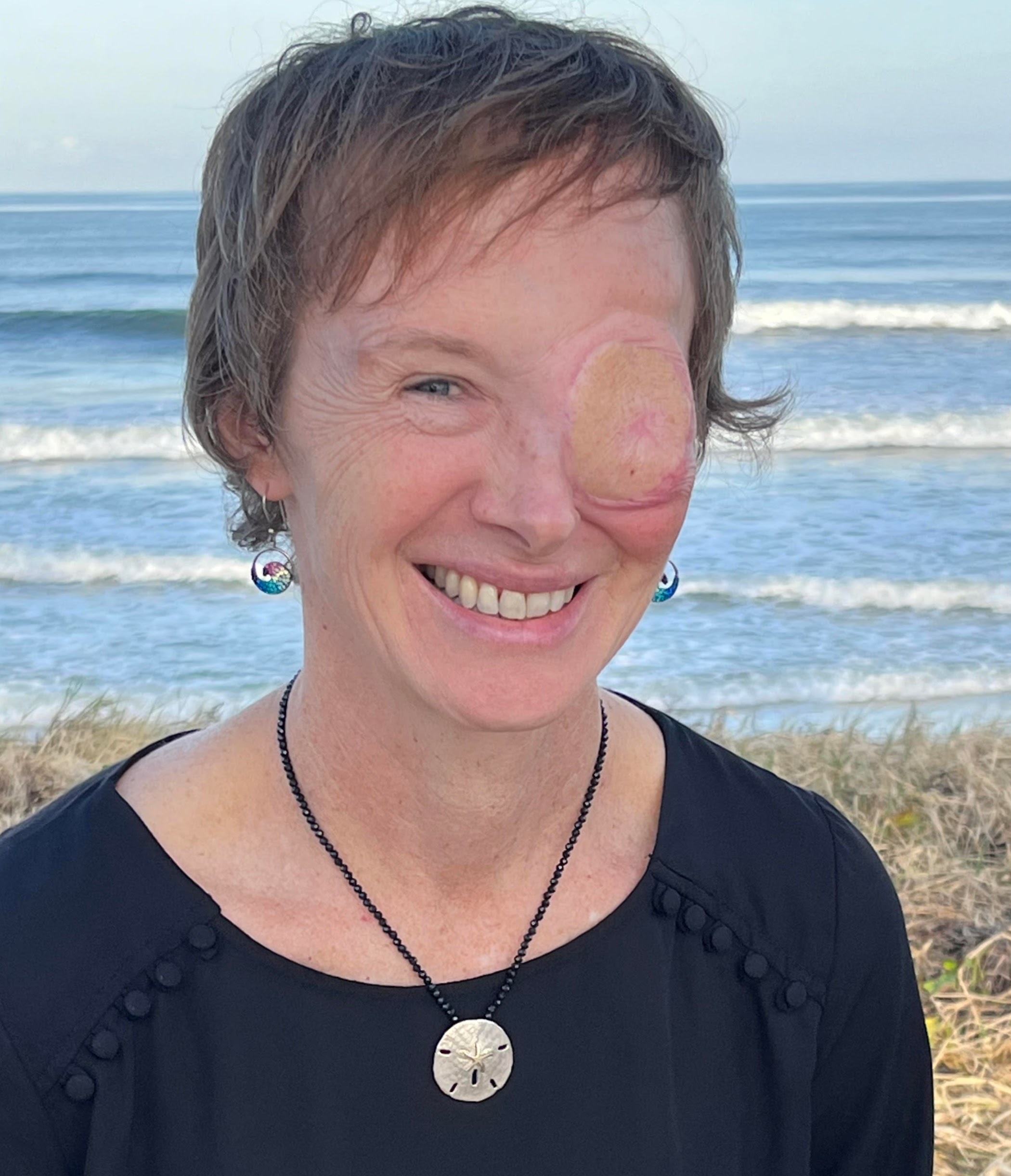
Caring leader, Leadership & Change Consultant, Coach, Mentor,
With over 25 years of experience spanning executive leadership, operations, human resources, business planning, and technology, Diana has built a reputation for fostering teamwork, driving organizational health, and leading with influence, not just a title.
A member of the Maxwell Leadership Executive Program, a Corporate Facilitator, and a Certified DISC Consultant, Diana is dedicated to empowering individuals and organizations through open, engaging, and values-driven leadership. Her mission is to create a meaningful impact and ensure every person she encounters feels valued.
Beyond her professional achievements, Diana is a devoted wife, mother, and committed volunteer. She thrives on sharing insights about leadership, resilience, and navigating challenges with authenticity.






















